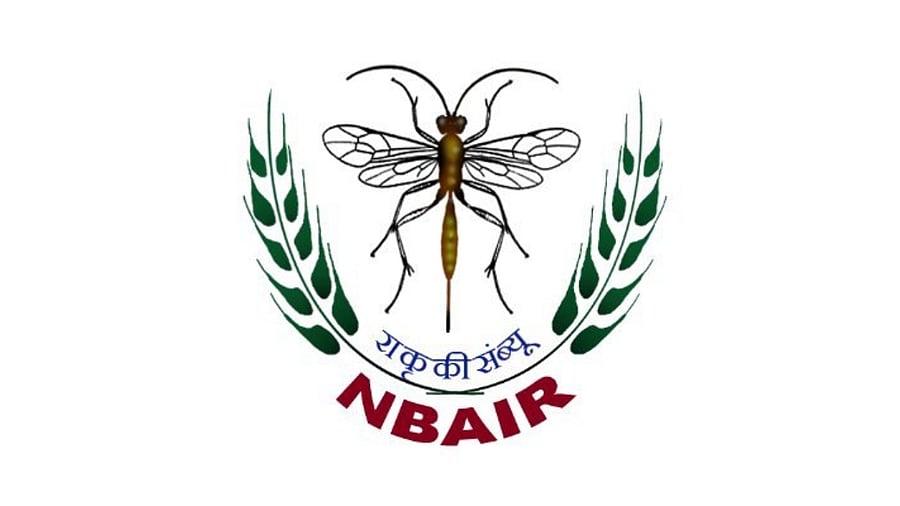
The ICAR-NBAIR logo.
Credit: X/@NbairIcar
Bengaluru: The National Bureau of Agricultural Insects Resources (NBAIR), under the Indian Council of Agricultural Research (ICAR), has discovered 63 new insect species in 2023-2024, boosting scientific understanding of agriculturally important insects.
ICAR-NBAIR also effectively managed the invasive cassava mealybug, which affected tapioca yield, by introducing the parasitoid Anagyrus lopezi, which helped restore yields to normal levels (20-25 tonnes/ha) in affected regions.
Additional biological control agents were released across various areas, greatly reducing the impact of pests. ICAR-NBAIR also helped in managing mango soft scale insect that had affected crops in Bengaluru and Hosur.
In 2023-2024, ICAR-NBAIR was granted five patents, including two in nanomaterial development for managing pests. Additionally, ICAR-NBAIR commercialised 47 technologies, including microbial pesticides, pheromones and insecticidal formulations. These technologies generated Rs 3.25 crore in revenue.
ICAR-NBAIR also achieved groundbreaking progress in gene silencing technology, which resulted in up to 85-89 per cent mortality in cotton whitefly. They also developed nanotechnology for controlled release of pheromones, drone technology for delivering biocontrol agents and nanosensors for early pest detection.
SN Sushil, director of ICAR-NBAIR, said, during a press conference here recently, "Farmers' reliance on chemical pesticides is very high. Our aim is to use bio-pesticides, which are chemical-free and sustainable to manage pests. We have 137 live cultures of insects on our campus, which is probably the largest in the world. We also store 3.4 lakh insect specimen. We also barcode the DNA of insects and keep it in our database."
